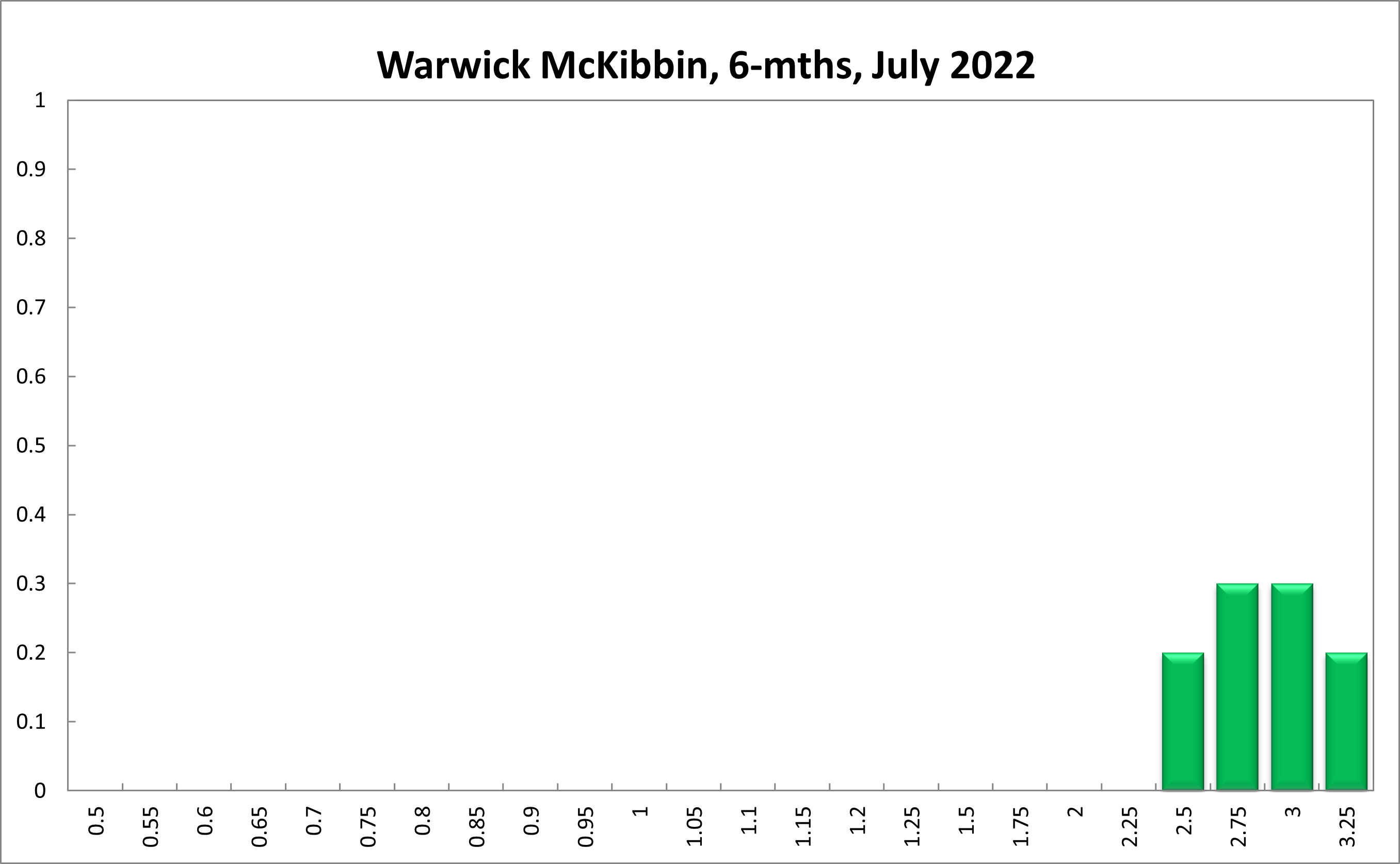Warwick McKibbin
The shift in inflation globally and in Australia has led to a significant reassessment of what is required to bring inflation back to target levels. The shocks driving Australian inflation are demand increases (from fiscal and monetary stimulus internationally and in Australia) and supply contraction (supply chain disruptions from Covid and the war in Ukraine, including energy and food shocks, as well as other key supply chain inputs, plus weather events such as the Australian floods). The RBA should be responding to the demand shocks but not the supply shocks (especially if the supply disruption is expected to improve). Fiscal policy also plays an essential part in supporting monetary policy by not further stimulating demand. Current events make this a difficult period for the RBA, and clarity of the communication of the policy rule acknowledging the uncertain effects of recent shocks and uncertainty about possible future shocks is as important as how much interest rates respond in the short term.




Updated: 19 October 2024/Responsible Officer: Crawford Engagement/Page Contact: CAMA admin










